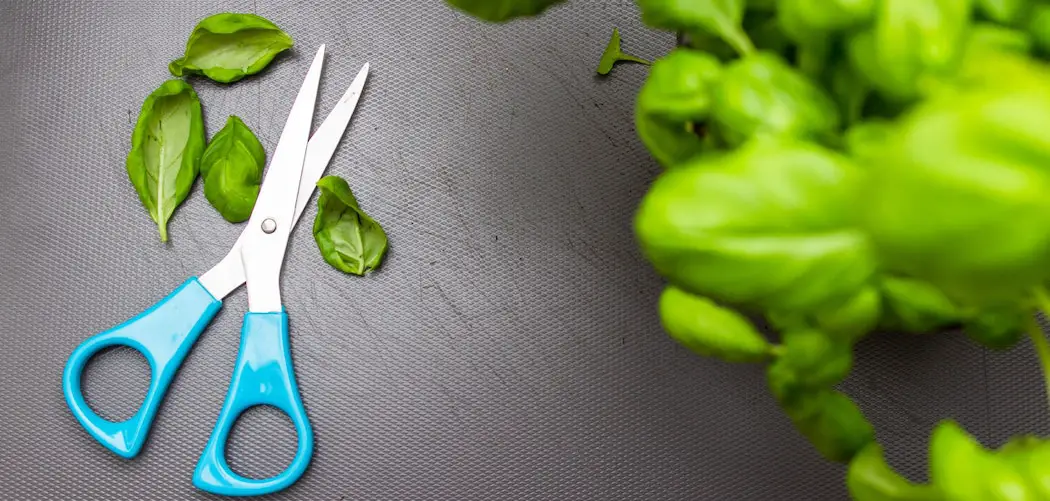In recent years, we have become more and more aware of how extraordinarily complex and amazing plants are – and that may lead to the question about whether or not they can feel pain. After all, most other living organisms can.
So, do plants feel pain when cut?
Nobody knows for sure whether plants can feel pain when they are cut. Plants have nervous systems, but not in the same way animals do. Pain in animals is designed to encourage them to move away from the source of danger – and as plants can’t do that, there may be no reason for them to have developed a sense of pain. Essentially, science can’t be sure yet.
However, plants interact with the world in much the same way as all other creatures. They fight with each other for territory, they confuse and avoid their predators, they prey on food (sometimes even on animals!), and they search for the best ground.
It is not unreasonable to think that they might have an equivalent of the pain response, even if it is processed in a different way and serves a different purpose.
This might sound like a crazy idea if you haven’t come across it before. How could a plant possibly “scream”? They have no voices, no throats, and no ears to hear their own articulations with.
However, new studies are beginning to discover that plants may well scream when they are cut, or even when they are distressed.
You might be wondering why you’ve never heard one scream if that’s the case. Why isn’t your lawn yelling at you every time you mow it? Why don’t your houseplants shriek when they need a drink? What about the fruit you pick, or the vegetables we eat?
Can plants scream?
When cut, plants scream or better said they can vocalize on an ultrasonic level. So, we can’t hear them without technology that is capable of recording ultrasonic sound. It’s possible that in the future, that this knowledge could be used to improve our farming techniques, as well as brush up on our approach to houseplants and their well-being.
It has been known for a while that a distressed plant produces sound, even though you can’t hear it without specialized equipment.
Bubbles in the stem, for example, might move faster or slower in response to damage, or might pop more rapidly. This causes vibrations, which produce tiny amounts of sound.
However, recent studies show that plants are actually making noises that can travel through the air, and that these may be intended to communicate with other plants and animals in some way.
It is possible that plants listen to their neighbors and respond to their distress.
Animals may also use the sounds of distress to guide their behavior and responses to the plant, although this is entirely speculative and may not be the case.
It is still early days and a lot more study needs to be done, but it seems that the answer to whether plants scream when you cut them could well be “yes,” even though that sounds bizarre!
Do Plants React To Being Cut?
The answer to this question is certainly yes, they do react in many ways – such as trying to heal the damage.
When being cut, plants can release sap and sometimes successfully re-knit damaged stems, especially if the stem is supported for them; this is a response to being cut.
However, it can be argued that this is a basic stimulus response. If you’re more interested in whether plants react vocally, you aren’t alone.
A 2013 study published in the Journal of Experimental Botany, called “Methods for measuring plant vulnerability to cavitation: a critical review”, explored how plants respond to different forms of stress. The scientists wanted to know whether plants produce a different sound if you cut them to if they are thirsty.
Their findings suggested that plants with damaged stems may respond by squealing at an ultrasonic level, and different plants squeal at different rates.
They also found that depriving a plant of water produced a different vocal response to inflicting physical damage.
It is important to note that all the research on how plants vocalize is quite early, and much of it lacks substantive evidence. Further study is needed to conclude for sure that plants react vocally to physical damage, and whether they can feel pain.
Many scientists argue that plants cannot feel pain because they do not have brains that are able to process the pain.
Plants lack of a brain or traditional nervous system is one of the reasons they can’t get drunk. Also, now that we are on the topic of plants and feelings, I have wrote an in depth article you might want to check out about if plants feel lonely.
However, as others point out, plants seem capable of complex and surprising responses to external stimuli, so there is much that we don’t understand about the way they process information.
For example, it is thought that trees can communicate with each other through their roots systems, possibly warning each other of danger and even providing nutrients to saplings that have not yet reached sufficient light levels to keep growing.
This would indicate that plants, despite not having brains as we know of, are capable of intelligent decision-making and surprisingly complex responses to the environment and to each other.
Given this, it would be strange if they didn’t react in some way to being cut, and with recent research, it seems reasonable to assume that they may react vocally as well as by attempting to repair the damage, especially if this vocalization serves to communicate with and benefit others in their species.
Do Plants Cry?
If you have ever seen liquid dripping from your plant, you might be wondering if plants can also shed tears when something is wrong – especially as they can do so many other extraordinary things.
However, there is nothing yet to suggest that plants cry when distressed, and as current research indicates humans are the only creature that produces tears when upset, it’s unlikely that plants cry in response to an injury or deficiency.

Instead, plants dripping water is a process called “guttation” and it’s water being secreted through the pores on the leaves. This isn’t quite the same as the plant transpiring (where water evaporates through its pores throughout the day), but a more deliberate removal of excess water.
Guttation occurs when a plant has absorbed a little too much water, possibly because the air is humid and they have been watered too much. The plant needs to get rid of the water, so it exudes it through its pores to evaporate off the leaves.
This can be very pretty, and it’s not anything to worry about, although you may want to check you aren’t over-watering your plant, especially late in the day.
If it happens regularly, give your plant a little time to dry out and cut back slightly on your watering routine; your plant is getting more than it needs.
Don’t worry: your plant isn’t crying (that we know of!).
Final Thoughts
So, the answer to whether plants can feel pain is that nobody is yet sure, and scientists are quite divided on the subject.
Some think that pain is impossible to process without a brain comparable to an animal’s brain, while others think that plants are constantly surprising us, and we might simply not understand them well enough yet.
It is possible that plants are capable of processing pain in some way, perhaps different to the way that humans and animals feel it. It is likely to serve a different purpose (since it can’t engage the “fight or flight” mechanism), but it may exist in a recognizable form in our green friends. Time – and science – will tell!
References
Journal of Experimental Botany – Methods for measuring plant vulnerability to cavitation: a critical review.


